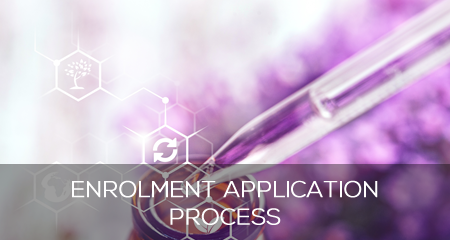Personal Interest Courses
South Pacific College of Natural Medicine offers a limited number of Personal Interest courses for those who are interested in learning more about natural medicine, depending on course enrolment numbers.
Personal Interest courses may be suitable for those who have not studied for some time and wish to upskill, or who may like to try studying at an advanced level before committing to enrolling in a 3 – 5-year degree programme.
Personal Interest students are in the same classes, and study the same course content, as students fully enrolled in College programmes.
We also offer a NZ Certificate in Study & Employment Pathways – Natural Medicine (Level 4) (highly recommended for those who have never studied at tertiary level).
- If a student would prefer, they can choose (at the start of their study) to attend classes or access course material online without completing any of the assessments.
- If a student has chosen to study with assessments, all Bachelor of Natural Medicine assessment and attendance requirements will apply.
- Please note that successful completion of a Personal Interest course does not guarantee entry into the Bachelor of Natural Medicine.
On occasion, our admissions sub-committee may suggest to prospective students that Personal Interest courses may be a better option than applying to enrol in the degree programme. This allows the student an opportunity to experience studying with SPCNM, as outlined above. It also allows academic staff to gauge the student’s academic ability and engagement.
Some students who have successfully completed Personal Interest courses (with assessments), and who have met all entry criteria, have gone on to apply for and/or be accepted into the Bachelor of Natural Medicine.
Students may receive credit recognition transfer for a maximum of four courses that have been completed immediately prior to acceptance into the degree.
Please enquire to enquiries@spcnm.ac.nz if you would like further information about studying Personal Interest courses.





